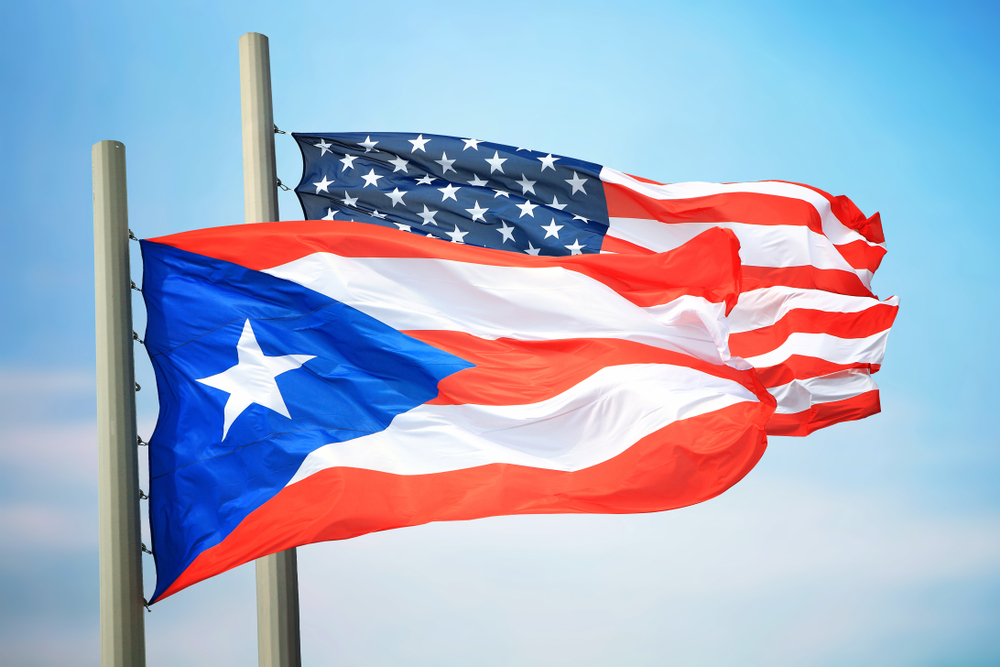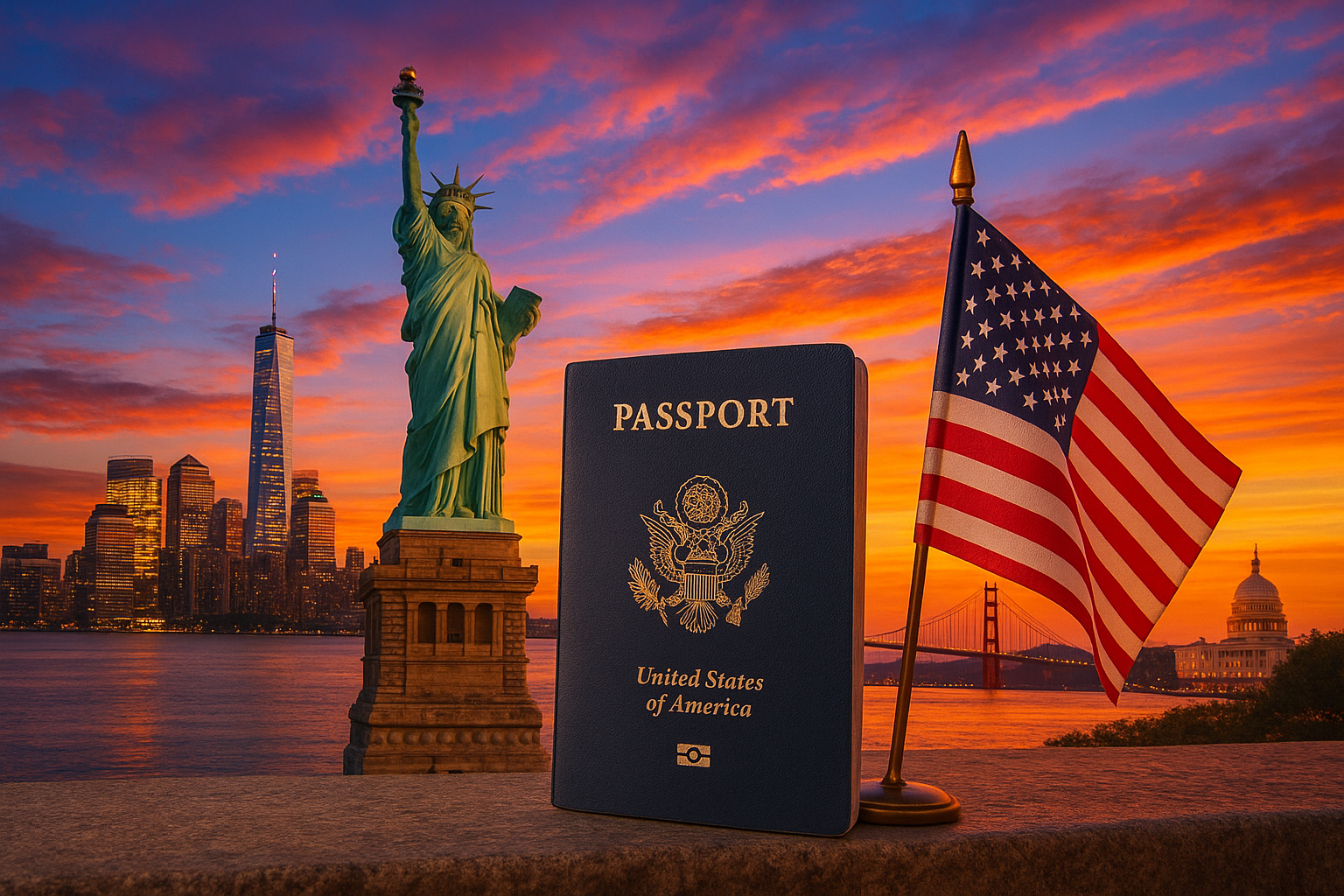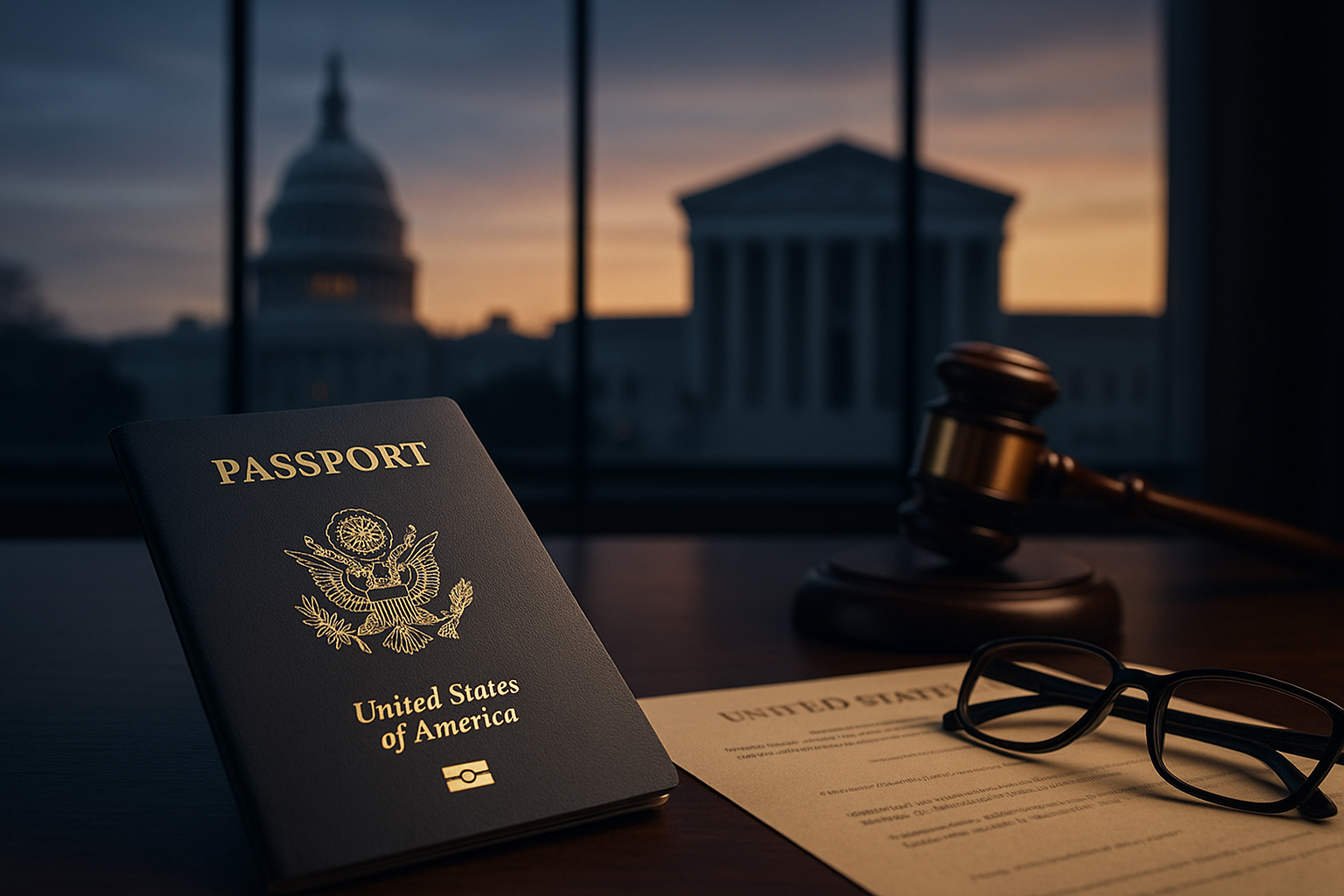Are Puerto Ricans US Citizens? Complete Citizenship Guide

It’s one of the most common questions with surprisingly unclear answers: are Puerto Ricans US citizens? The short version is yes, but the long version reveals a unique legal and political relationship shaped by over a century of history. From the Jones-Shafroth Act of 1917 to the current debates on statehood and representation, Puerto Rico’s status raises important questions about rights, responsibilities, and identity.
In this guide, we break it all down so you know exactly where Puerto Ricans stand when it comes to US citizenship.
Puerto Rican Citizenship Status: The Basics
Historical Background of Puerto Rico’s US Relationship
To understand the question “are Puerto Ricans US citizens,” we need to start with Puerto Rico’s unique political and legal relationship with the United States. Puerto Rico became a US territory in 1898 following the Spanish-American War, under the Treaty of Paris. This marked the beginning of a complex and often ambiguous relationship between Puerto Rico and the mainland.
Unlike US states, Puerto Rico is classified as an “unincorporated territory.” That means while it falls under US sovereignty, it does not have the same constitutional rights or federal representation as the fifty states. This in-between status has shaped nearly every aspect of civic life for Puerto Ricans: from voting rights to federal benefits and taxation.
In the early 20th century, there was much debate within both Puerto Rico and the US Congress about whether residents of the island should be granted US citizenship, and if so, what kind. The relationship remained in limbo until a pivotal legislative moment in 1917.
The Jones-Shafroth Act of 1917 and Citizenship Rights
The answer to the question “are Puerto Ricans US citizens” is yes—thanks to the Jones-Shafroth Act of 1917. This law, passed by the US Congress, granted US citizenship to individuals born in Puerto Rico. But it wasn’t just a simple legal update—it was a decision layered with political, military, and social implications.
One major motivator for the act was World War I. With war on the horizon, the US government saw value in expanding the draft pool to include Puerto Ricans. In fact, shortly after the law was passed, nearly 20,000 Puerto Ricans were drafted to serve in the war. The timing wasn’t a coincidence: it was strategic.
However, it’s important to clarify what the Jones Act did not do. While it extended citizenship, it did not make Puerto Rico a state, nor did it offer full constitutional protections. The US Supreme Court later ruled that only “fundamental” rights apply to unincorporated territories like Puerto Rico. This has resulted in a citizenship status that is both functional and limited.
Puerto Ricans hold US passports, are protected by the US Constitution in many ways, and are subject to US federal laws. But they still face restrictions that mainland citizens don’t: most notably, the inability to vote in presidential elections unless they move to one of the fifty states.
The Jones Act established what could be called “second-tier citizenship.” While Puerto Ricans are US citizens, the territory’s political status means their rights and representation are not on par with mainland citizens. And this imbalance continues to fuel debates around statehood, autonomy, and legal reform today.
So yes, Puerto Ricans are US citizens, but as you’ll see in the next sections, what that citizenship entails is far from simple.
Rights of Puerto Rican US Citizens
Federal Benefits and Privileges
Puerto Ricans are, by law, United States citizens. This status grants them access to many federal benefits and privileges, including Social Security, Medicare, Medicaid (with some limitations), and federal student aid. However, the funding formulas for these programs often differ from those applied in the mainland. For example, Puerto Rico receives capped Medicaid funding, unlike the open-ended federal support available to US states. That means fewer resources per resident, which affects healthcare and social safety net programs across the island.
Despite this unevenness, Puerto Rican US citizens can also travel freely between the island and the mainland without a visa or passport: something often overlooked but incredibly valuable for those managing family, work, or study commitments across borders. Their US citizenship through Puerto Rico enables them to live and work anywhere in the US without any additional paperwork or immigration approvals.
Voting Rights and Limitations
This is where the conversation becomes more complex. Yes, Puerto Ricans are US citizens; but no, they cannot vote in presidential elections unless they become residents of a US state. Residents of Puerto Rico can vote in local elections, including electing their governor and legislature. They also elect a Resident Commissioner, who represents the island in the US House of Representatives but cannot cast a vote on final legislation.
In essence, Puerto Rican citizens are part of the democratic process, but not fully. They can serve in the military, pay certain federal taxes, and hold US passports, yet are denied a full voice in choosing the nation’s president or voting representatives with real legislative power in Congress. This is a significant point in the debate around Puerto Rico US citizens’ rights, one that often sparks frustration and legal challenges.
Travel Benefits with US Citizenship
Holding a US passport, Puerto Rican citizens enjoy significant freedom of movement. There’s no need for special visas or entry processes when traveling to the US mainland, and they benefit from visa-free or visa-on-arrival access to over 180 countries, just like any other American. This level of global mobility is a powerful benefit of US citizenship and one of the practical answers to the question “are Puerto Ricans US citizens”.
For expats, retirees, or students looking to split time between Puerto Rico and another part of the US or the world, this flexibility is a massive advantage. Whether it’s for education, business, or personal travel, Puerto Rico’s citizenship status allows for seamless movement and legal work rights within the US.
Next, we’ll look at how Puerto Rican citizenship compares to that of US mainland residents, and what that means in terms of taxes, representation, and eligibility for federal programs.
Differences Between Puerto Rican and Mainland US Citizens
Residency Requirements and Taxation
While Puerto Ricans are US citizens, their tax obligations differ significantly from those living on the mainland. Residents of Puerto Rico generally do not pay federal income tax on income sourced from within the island. Instead, they pay taxes to the Puerto Rican government. However, if a resident earns income from the mainland or internationally, they may still be required to file a federal tax return with the IRS.
This unique tax setup has turned Puerto Rico into a magnet for entrepreneurs and investors seeking favorable tax conditions. Programs like Act 60 (formerly Acts 20 and 22) offer incentives that can significantly reduce tax burdens for eligible individuals. That said, these benefits are available only to Puerto Rico permanent residents who commit to living on the island for the majority of the year.
It’s important to note that Social Security and Medicare taxes are still paid, and residents are eligible for those benefits. But the broader picture is this: the citizenship is the same, yet the tax implications differ. For some, that’s a financial strategy. For others, it’s a point of legal and political contention.
Political Representation
Here’s where the gap between US territory citizenship and full statehood becomes crystal clear. Puerto Ricans have no voting representation in the US Senate and only one non-voting delegate in the House of Representatives. This means that over three million US citizens on the island are impacted by federal laws but lack a meaningful voice in the bodies that create them.
That imbalance often raises questions about fairness and democracy, especially since Puerto Ricans have fought and died in every major US conflict since World War I. Despite holding the same citizenship status, they’re excluded from one of the most fundamental democratic rights, voting for those who govern them.
This unique position creates a sort of second-class citizenship reality, despite the legal parity of US citizenship. Many advocacy groups continue to push for either statehood or fuller representation, but for now, Puerto Rican citizens remain on the periphery of American political power.
Federal Program Eligibility
Access to federal programs exists, but not on equal terms. As mentioned earlier, federal healthcare funding is capped, and Puerto Rico often receives less per capita compared to US states. Similarly, Supplemental Security Income (SSI), which supports elderly or disabled individuals with low income, is not available to Puerto Rican residents, despite being available in all 50 states and other territories like Guam.
Programs such as FEMA disaster relief, public housing, and education grants are available but are often distributed differently or more slowly. The result is a patchwork of support that reinforces the idea that while Puerto Ricans are citizens, their access to federal support is not equivalent.
So while the question “are Puerto Ricans US citizens” has a straightforward legal answer, yes, the lived experience of citizenship is more complex. In the next section, we’ll explore how Puerto Rican citizenship is acquired and what it means in legal and practical terms.
How to Acquire Puerto Rican Citizenship
Birth Rights in Puerto Rico
If you’re born in Puerto Rico, you’re a U.S. citizen. This has been the case since the passage of the Jones-Shafroth Act in 1917, which granted citizenship to individuals born on the island. From that point onward, Puerto Rican nationality has been intertwined with U.S. citizenship. This means you’ll carry a U.S. passport, vote in U.S. elections (if living on the mainland), and be entitled to the same basic rights as someone born in New York or California.
However, there’s a growing interest in the idea of a distinct Puerto Rican citizenship. While largely symbolic under current U.S. law, some legal frameworks and identity movements on the island continue to explore what separate Puerto Rican citizenship could mean in terms of national identity, cultural preservation, or even independence.
Naturalization Process
What if you weren’t born in Puerto Rico, but you want to become a resident or be recognized under its unique framework? For U.S. citizens, moving to Puerto Rico is simple. No immigration process is required. You can live, work, and even benefit from the island’s favorable tax policies by meeting certain Puerto Rico permanent resident criteria, especially under Act 60.
For non-U.S. citizens, however, things are a bit different. You would first need to gain legal residency in the U.S., and then, over time, go through the standard naturalization process. Puerto Rico, being a U.S. territory, follows the same immigration and naturalization laws as the mainland. There is no separate immigration pathway through Puerto Rico.
It’s worth noting that some people refer to acquiring “Puerto Rican citizenship” as part of residency or tax registration requirements. This should not be confused with national citizenship, it’s typically an administrative designation with no effect on your broader Puerto Rico immigration status under U.S. law.
Dual Citizenship Considerations
Since Puerto Ricans are U.S. citizens by birth, they can hold dual citizenship just like anyone else under American law. This means someone from Puerto Rico can apply for and hold citizenship from another country while retaining their U.S. passport. It’s perfectly legal, provided the other country also allows dual citizenship.
There is, however, ongoing conversation about the meaning of “Puerto Rican citizenship” in a cultural and political sense. In recent years, some legal scholars and local governments have attempted to revive the idea of a unique Puerto Rican citizenship framework, largely symbolic, but one that may evolve should the island’s political status change.
In summary, if you’re asking whether you can acquire Puerto Rican citizenship: yes, by birth. If you’re asking whether it’s separate from U.S. citizenship: the answer is more nuanced. It’s deeply connected to the island’s colonial history and evolving identity, which we’ll unpack next in the final section.
Puerto Rico’s Political Status and Future Citizenship Implications
Statehood Debates
At the heart of the question “Are Puerto Ricans US citizens?” lies Puerto Rico’s ongoing political status. As a U.S. territory, Puerto Rico occupies a unique space: not quite a state, not fully independent. And that in-between status has fueled decades of debate around whether the island should become the 51st state, remain a commonwealth, or pursue independence.
Multiple referendums have taken place over the years, with the most recent ones showing increasing support for statehood. However, congressional approval is required to admit a new state, and the issue remains politically complex. Statehood would provide Puerto Ricans with full representation in Congress, the right to vote in presidential elections from the island, and potential shifts in federal funding. It would also likely solidify U.S. citizenship rights across all legal and symbolic dimensions.
Impact on Citizenship Rights
Currently, Puerto Ricans are granted U.S. citizenship by statute, not by constitutional birthright. That’s a crucial distinction. Because the citizenship was conferred through legislation (namely the Jones-Shafroth Act), it is technically revocable by Congress, although highly unlikely. Should Puerto Rico ever become independent, it could trigger legal discussions around what happens to that citizenship. Would it be retained? Would Puerto Rico create its own national citizenship structure?
These are not theoretical questions. Legal scholars and political leaders continue to explore the implications of such a shift. If Puerto Rico achieved statehood, citizenship rights would likely become constitutionally protected, offering the same permanent guarantees as those born in the 50 states. If independence or free association were pursued, the island might establish a distinct passport, immigration system, and citizenship framework, fundamentally altering what it means to be a Puerto Rico US citizen.
Recent Developments
In recent years, efforts to clarify Puerto Rico’s future have gained momentum. In December 2022, the U.S. House of Representatives passed a bill that would allow Puerto Rico to hold a binding plebiscite to decide its political future — statehood, independence, or free association. While it did not pass the Senate, it marked the first time Congress seriously entertained a self-determination framework for the island.
There is also growing interest within Puerto Rico’s own government to explore autonomy and define Puerto Rican nationality in broader terms. These movements are often more cultural and symbolic but could lay the groundwork for future legal shifts if the island’s status ever changes.
In short, while Puerto Ricans are currently U.S. citizens, the conversation around what that citizenship looks like in the future is far from settled. Whether through statehood, continued territorial status, or a new political arrangement, the implications for identity, citizenship rights, and international mobility will continue to evolve — making this a topic worth watching closely.
FAQ
1. Are Puerto Ricans US citizens by birth?
Yes, individuals born in Puerto Rico are granted U.S. citizenship at birth under the Jones-Shafroth Act of 1917. This means they hold the same citizenship status as those born in the 50 U.S. states. They are issued a U.S. passport and enjoy most federal protections and benefits, although some limitations exist due to Puerto Rico’s territorial status.
2. Can Puerto Ricans vote in U.S. presidential elections?
Puerto Ricans who reside on the island cannot vote in U.S. presidential elections. However, if a Puerto Rican moves to one of the 50 states or the District of Columbia, they can register and vote like any other U.S. citizen. This limitation is tied to Puerto Rico’s status as a U.S. territory, not the citizenship status of its residents.
3. Is a Puerto Rican passport different from a U.S. passport?
No, there is no separate “Puerto Rico passport.” Puerto Ricans hold a standard United States passport issued by the U.S. Department of State. This passport grants them full rights to travel internationally under the protections and benefits of U.S. citizenship. While culturally Puerto Rican identity is distinct, legally and internationally they are U.S. citizens.
4. Do Puerto Rico permanent residents have the same rights as citizens?
“Permanent residents” of Puerto Rico typically refer to those who live there but are not U.S. citizens, such as foreign nationals with legal status. These individuals do not enjoy the full rights of Puerto Rican U.S. citizens, such as voting or federal program eligibility. U.S. citizens residing in Puerto Rico, however, do have most of the same rights as mainland citizens.
5. Could Puerto Ricans lose their U.S. citizenship in the future?
While technically U.S. citizenship in Puerto Rico was granted by statute, not the Constitution, it is extremely unlikely that it would ever be revoked. Any major change, such as independence or a shift in political status, would involve clear legal pathways to preserve or redefine citizenship rights. For now, U.S. citizenship remains stable and widely accepted as permanent for Puerto Ricans.
Need Help?
Your goals deserve a strategy that matches your ambition. At Millionaire Migrant, we’ve spent decades helping individuals and families achieve freedom through tailored investment plans, strategic tax optimization, and second citizenship solutions. Our mission is simple: we help you create a life where you can live, work, and invest with no borders and minimal tax burdens. Ready to redefine your future?
Contact us today and discover how Millionaire Migrant can help you make it happen.


